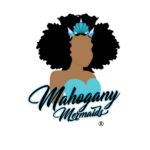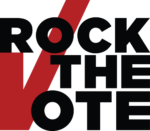Advocacy & Policy
- Advocacy/Policy (35)
- After School Administration (14)
- California Standards (39)
- Child Advocacy (44)
- Common Core (32)
- Education Rights and Reform (21)
- Juvenile Justice and Reform (22)
- National Standards (13)
- Youth Justice and Reform (20)
Children’s Funding Project offers communities who are implementing new voter-approved funding a toolkit for designing, operating, and evaluating programs. From creating a timeline to telling your programmatic-outcome story, this toolkit provides step-by-step guidance.
PFLAG has curated resources for those new to the conversation surrounding gender identity. These resources include national publications, online academies, books, films, and special topics.
To prepare and support communities as they participate in Trans Awareness Month (November), Advocates for Youth has prepared a toolkit with resources for immediate implementation. Resources include book lists, infographics, and video clips.
This resource provided by the ACLU gives guidance to knowing your rights when questioned by law enforcement agencies and authorities. A copy of “My Rights Card” is available in this resource for use if needed. This resource is prepared in Spanish.
This resource provided by the ACLU gives guidance to knowing your rights when questioned by law enforcement agencies and authorities. A copy of “My Rights Card” is available in this resource for use if needed. This resource is prepared in English.
In celebration and honor of Native Heritage Month, the National Educational Association (NEA) offers year-round resources to share the narrative of Indigenous People groups.
Resources include lesson plan units for children grades Kindergarten through 12 that focus on history, accurate representation, Thanksgiving lesson plans from the Native American perspective, background resources, printables/posters, videos, and recommended readings. The curated collection is in partnership with organizations centered in social justice and advocacy.
NEA Note: “Educators should be mindful of cultural appropriation when teaching about other cultures and understand that Native American students in class may experience lessons differently than non-Native students.”
A Native woman-led racial and social justice organization, IllumiNative has created free resources (in partnership with the National Indian Education Association and Amplifier) that increase the visibility of and challenge the negative narratives of Indigenous peoples.
Resources available include youth and adult publications centered in advocacy, awareness, and research. Lesson plans include remote learning opportunities that explore the work of Indigenous leaders and changemakers in digital tool formats for grades PreKindergarten through 8th grades.
The Southern Poverty Law Center (SPLC) engages audiences in a community education program, Learning for Justice. This resource provides educators with free resources to encourage youth civic participation as well as to learn honest history, promote servant leadership, and move toward a racially and socially just society.
This collection of resources has been curated by SPLC to offer lessons for elementary and middle school classrooms that focus on elections and voting.
Generation Citizen has created a resource designed to inform, support, and empower youth voices in the act of civic engagement and voter registration. Specific state-by-state information is also provided for the following locations: California; Kentucky; New York; Massachusetts; Pennsylvania; Rhode Island; Oklahoma; Texas; and Washington. A mini-lesson plan on voter registration is included.
Created in August of 2016 by CEO Aliyah Griffith, Mahogany Mermaids promotes awareness and advocacy that create opportunities for children and youth of color to explore and join the aquatic sciences.
A primary goal of Mahogany Mermaids is to connect, impact, and outreach to as many students and youth as possible. To achieve this, they have offered education tools via their website to build ocean awareness and conservation efforts for students 4th – 12th grade. Their resource page also offers uniquely created activities connected to national aquariums as well as links to outside resources.
In response to questions and concerns surrounding California youth activity and play, LA84 commissioned research to address these conversations. One of its kind, the 2024 California Play Equity Report offers insight to access gaps and barriers that communities and youth face. Visit 2024report.la84.org for more information.
A healthy democracy requires active participation and prepares its people to self-govern by providing a practical understanding of how the government works, how power is leveraged and the skills to exercise their rights and represent their interests.
Rock the Vote’s Democracy Class is a free, nonpartisan curriculum that educates high school students about the importance and history of voting and pre-registers and registers them to vote.







